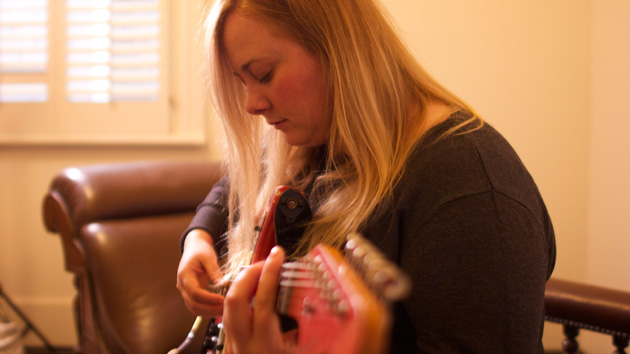
Courtesy of Drag City Records
Cate Le Bon
Crab Day
Drag City

With her stiff, quasi-Teutonic delivery and spare, Velvet Underground-inflected guitar rock, you might think the Welsh-born Cate Le Bon (no relation to Duran Duran’s Simon) is trying to channel the zombie chanteuse Nico on her fourth album. But listen closely to the sneakily addictive Crab Day and it starts to feel more like an affectionate update than a dutiful purist homage. There’s a wry, raised-eyebrow quality to Le Bon’s reserved vocals that hints at a playful streak in “I’m a Dirty Attic,” where she murmurs languidly, “I want to make sense with you.” Doing an about-face, she offers a somber meditation worthy of Bryan Ferry on the lovely ballad “Love Is Not Love,” regarding romance as a “cold hammer” and sighing, “I don’t know how to love you right.” From wacky (“Wonderful”) to heartfelt (“I Was Born on the Wrong Day”), Crab Day is an emotional roller-coaster ride well worth taking.












